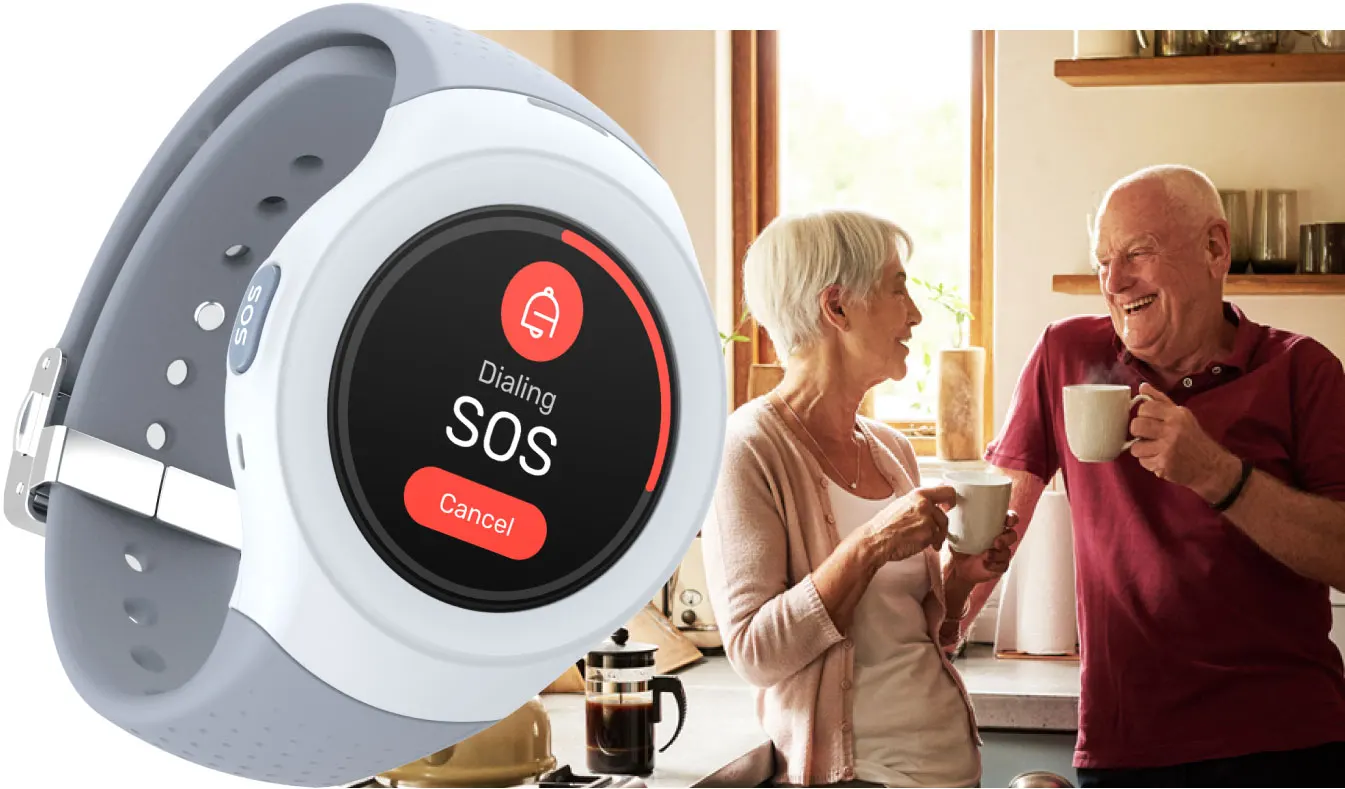
Credit: Spacetalk
ASX-listed Spacetalk, an Australian wearable tech developer, has introduced a fall detection feature in its LIFE smartwatches for seniors, available via a free upgrade.
HOW IT WORKS
According to a press statement, Spacetalk collects fall-associated data from the wearer, including age, height, weight, gender, fall history, medication, psychological condition and dizziness. Stored in a de-personalised manner on the device and Spacetalk's servers, the base data is used to calculate the user's fall risk profile and the initial sensitivity setting of the device's sensor.
Spacetalk's LIFE devices have built-in smart accelerometer and gyroscope sensors that continuously record and relay data of the user's movements, speed and altitude to the company's servers. The data is used to continuously learn and enhance the accuracy of the fall detection technology.
The smartwatch predicts a fall by triangulating in real-time the base data with the wearer's anthropometric, medical and other critical personal information.
When a movement is interpreted as a fall, the device will activate an alert process for 30 seconds, during which the user can cancel if it is a false alert. If a fall is confirmed, it will notify via text message all emergency contacts with the wearer's location. In the absence of immediate responders, emergency services or third-party emergency responders will be deployed.
Spacetalk LIFE smartwatches now also have a Medical ID feature that provides users' health information to attending emergency responders.
WHY IT MATTERS
According to the Australian Institute of Health and Welfare, falls are the largest contributor to hospitalised injury cases and the leading cause of injury deaths in the country. About 42% of all hospitalised injury cases (over 200,000) and 40% of injury deaths (around 5,100 deaths) recorded in 2017-2018 were attributed to falls.
Falls requiring hospitalisations were more common to older people with more than one in three seniors experiencing a fall each year.
Spacetalk has worked closely with the aged and home care sector, the National Disability Insurance Scheme (NDIS) and emergency services providers in ensuring technology integration.
MARKET SNAPSHOT
Tech giants Samsung and Apple already have fall detection functionalities in their smartwatches which require the devices to be paired with their respective smartphones.
In March, Best Buy said it is working with Apple to support the fall detection alert process by bringing in trained agents during hard fall emergencies. Last year, the company launched its own wrist-worn device called Lively Wearable 2 that also has a fall detection feature.
Electronics firm TCL unveiled last year its Movetime Family Watch MT43A that also features fall detection.
Aside from smartwatches, fall detection has been incorporated in other wearable devices. In 2019, Starkey Hearing Technologies introduced a fall detection update on its Livio AI connected hearing aid.
According to Research and Markets, the global fall detection system market was valued at $422.29 million in 2019. It projected the market's value to reach over $750 million by 2027 at a 7.7% CAGR on the back of demand uptick for smartphones and wearable technology, a rising senior population and technological advancements in sensing devices.
In other news, Spacetalk was approved as an accredited provider by Australia's National Disability Insurance Scheme last week, allowing the agency's participants to purchase smartwatches from the company through support funding.
ON THE RECORD
"We've just added tremendous value to our Spacetalk LIFE device and platform. Falls among the elderly is one of the most important public health issues in today's aging society," Spacetalk Founder and CEO Mark Fortunatow said in a statement.
"By applying real-time AI and machine learning, Spacetalk now has arguably the most advanced and accurate Wearable Fall Detection technology on the market. I am extremely proud of our team who have designed and built this ground-breaking wearable technology. It will make a real and positive impact [on] wearers' safety and lives," he added.















